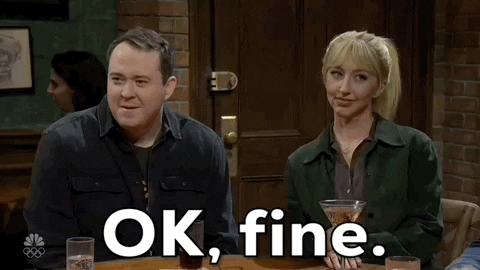Pipeline Management: Deal Stages
How to structure your deal stages like a pro
Hi friends - Happy Sunday! This week, I am in Nashville, visiting friends and sharing some GTM wisdom at the NEC. 🧠
New here? You can always access all of my historical posts on-demand at this link. Bookmark it 🤓
Alright, last week, we started a month-long series on pipeline management with part 1: when to create and close a deal.
This week, we’re digging into how to set up your deal stages.
Again, this is so CRITICAL to get right because it directly impacts your ability to obtain meaningful pipeline metrics required for forecasting, product development, go-to-market strategy refinement, positioning, and more.
Lego. 🏃♀️
How to structure your deal stages
What is a deal stage?
A deal stage represents a phase of your sales process leading up to your ONLY two possible outcomes, Closed Won and Closed Lost. 😉
Remember…on hold is not a deal stage!
How many deal stages should I have?
This really depends on your specific sales process…but here are some helpful guidelines:
No deal stage should be one-sided. Each deal stage should represent continued and mutual alignment with your prospective customer, so each stage should have an internal action + an external customer action.
Each stage should have explicit and objective exit criteria.
In the example below, a deal should only move to stage 2 once the discovery call is complete and the prospect is prequalified!
That means…the prospect showed up to the call and is interested in continuing the evaluation process (client action, mutual alignment, and objective exit criteria), AND they fit your criteria for a qualified deal (internal ✅).
Example:
So we don’t want things like…one deal stage for ‘proposal sent,’ and one stage for ‘proposal signed.’ That’s unnecessary. It’s one stage or phase with actions and continued alignment from both sides.
Ok cool, but what if I have different processes for different prospects?
For example, maybe you sell to both SMBs and enterprise customers, and the sales process for those two customer profiles looks very different. Or maybe you have a defined channel sales strategy and want to track partnership conversations separate from direct sales.
That's totally fine. Use different pipelines* for these with unique deal stages. For example, you might have a direct sales pipeline AND a channel sales pipeline, both with unique deal stages.
I’d just caution you: Don’t get carried away with this. I’ve come across some startups that have a different pipeline for every calendar year or something wild…aka they have 5-10 pipelines. 🤯
None of y’all’s businesses are that big or that complex. And this makes it very hard to extract meaningful data.
Do not do that. Keep it as simple as possible. Use as few pipelines and deal stages as possible.
Each new stage and pipeline should have a very clear and compelling business case. Thank me later.
What if we have the discovery call, and they are disqualified?
It should go straight from Stage 1 to Closed Lost. You should clearly indicate why it was lost (disqualified, no show, ghosted, etc), if it’s worth revisiting, and if so, when.
We’ll cover what data to track on deal records in greater detail next week! See ya there!
With love and gratitude -
If you want to learn more about working with me directly…
For B2B startups I serve as a Fractional GTM executive or advisor. Learn more about-
When you’re ready, let’s connect to discuss your specific growth goals and challenges.
Subscribe for weekly education, ideas, and frameworks
In this newsletter I share the exact tips, playbooks, and GTM multi-vitamins I’ve used to help 30+ B2B startups scale their revenue 150-590% YoY.
Thanks for reading GTM for Startups by Jess! This post is public so feel free to share it.



